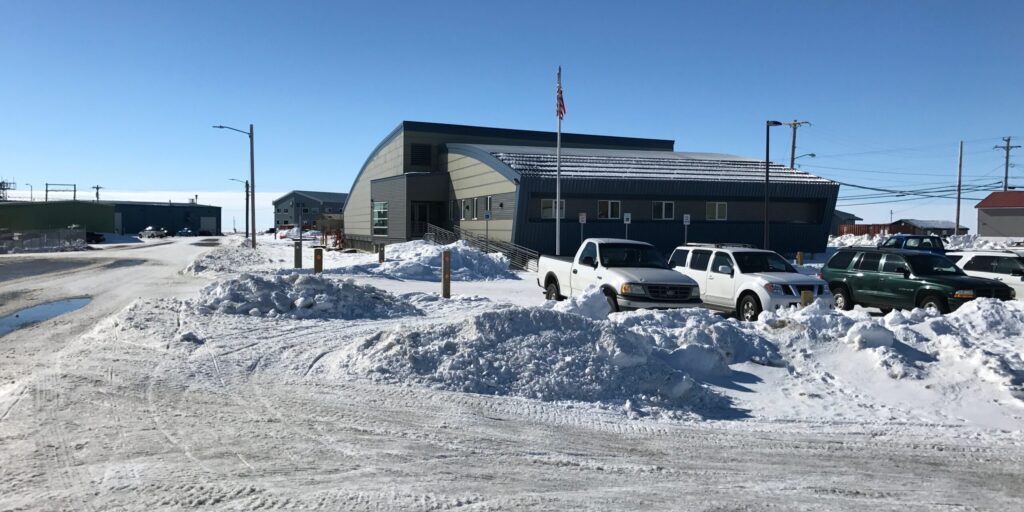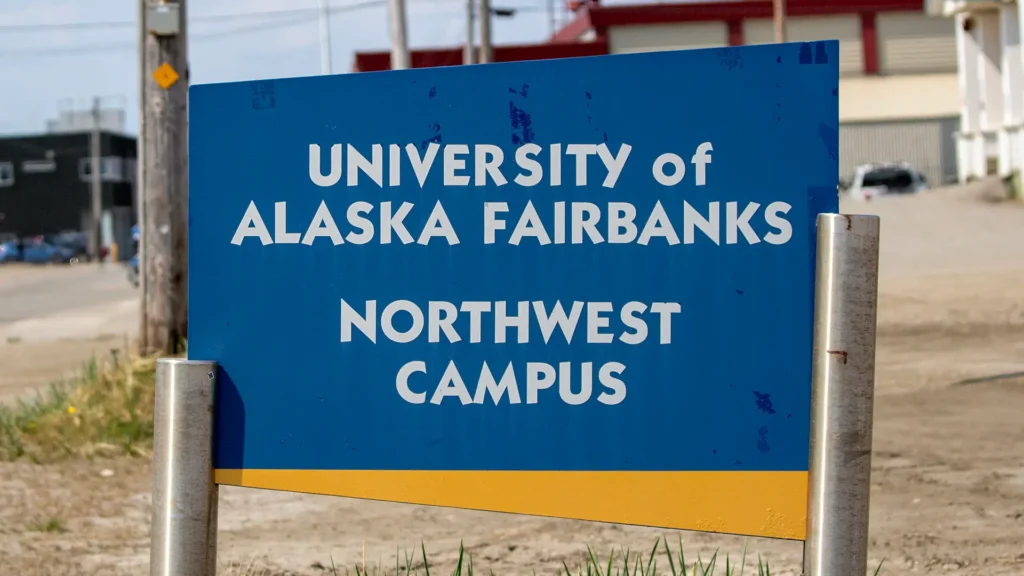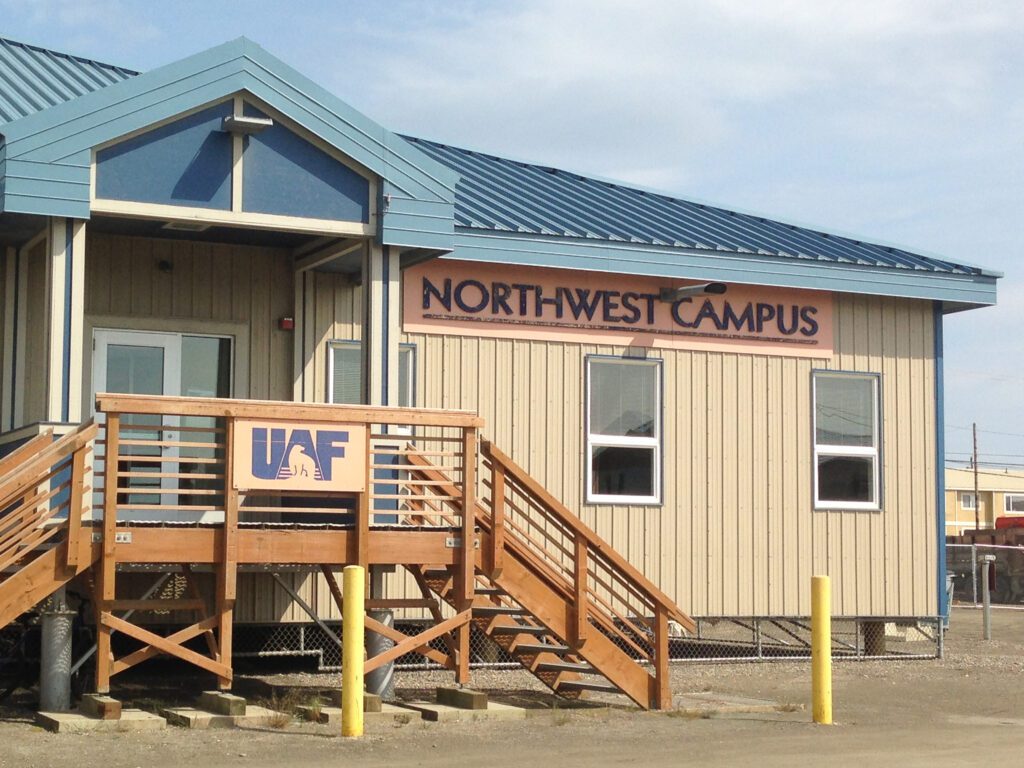When it comes to fighting climate change, a Kotzebue work group says collaboration is key to tackling Arctic issues.
The Arctic Resiliency Work Group formed after Kotzebue’s Coastal Resiliency Workshop in December. Statewide, experts and scientists came together to discuss how to combat and collaborate on Alaska’s most pressing environmental issues. After attending the workshop, Kotzebue entities agreed to continue that conversation.
“We didn’t have a lot of community or local participation, and we didn’t know which direction we should go,” said Western Arctic National Parklands Superintendent Maija Lukin. “One of the things we came up with as a local group was we would continue to meet and discuss Arctic resiliency here in our town, and surrounding Kotzebue.”
She’s one of about ten regulars in the motley crew of representatives from federal, city, state, and borough agencies. Work group members talk about what projects their organization is planning — and, in return, ask “how can I help the other members’ efforts?”
That shared knowledge is why local UAF Campus Director Linda Joule comes to the monthly work group meetings.“We’re trying to get this information together and eventually hold a traditional knowledge workshop where we share what we have with others, and we look for the gaps, and we fill them in. Because with our land changing, we need a base line to start.”
Traditional knowledge can fill in gaps lacking information — and can go on to influence the decision-making of biologists, anthropologists, planning departments, borough representatives, and other work group members in attendance.
Joule emphasized the importance of independence and being proactive to environmental challenges.
“In our value system, we help all those that need help — for survival. And there’s always someone in our own people that knows how to respond, how to make the difference. And we look to those people, whoever they are. Whether they have a title or not.”
Grandparents and work group members alike can ensure that Kotzebue citizens know how to respond to present and future regional problems. These difficulties can range from emergency evacuation to coastal erosion, which is why Lukin makes it a point not to use the word “climate change” when talking about the group’s mission — because to her, Arctic resiliency is about ensuring the future of natural and cultural resources.
Lukin admits that the Arctic Resiliency Work Group hasn’t created many tangible results yet. But with monthly conversation, strives towards Arctic resilience become a little closer every day.







